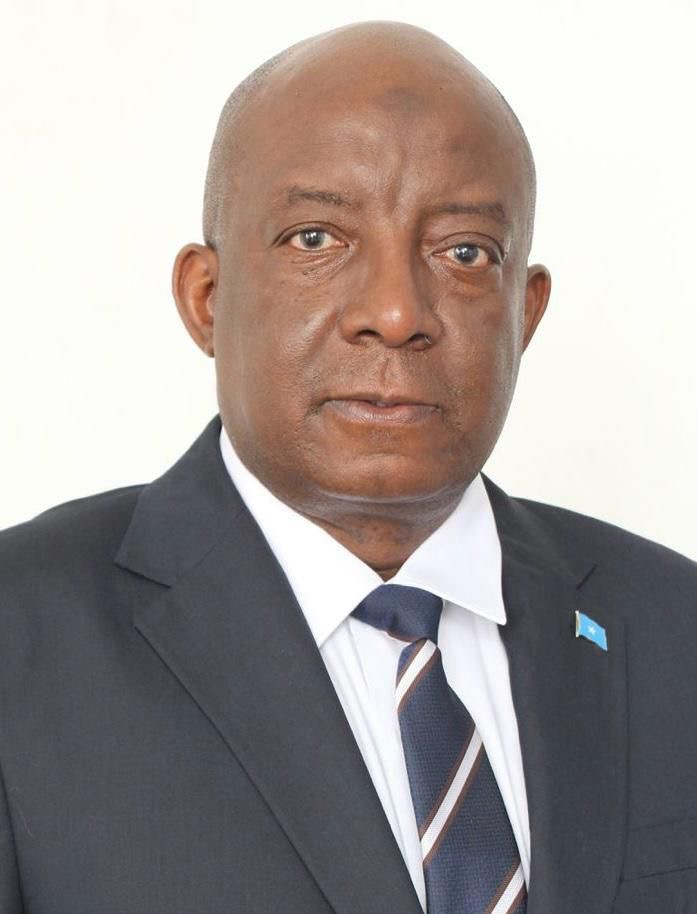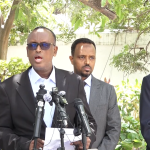- By Daud Aweis
“Diplomacy is the art of building bridges, not walls.’’ – Chanakya
Somalia continues to achieve significant diplomatic milestones with President Hassan Sheikh Mohamud’s successful visit to Azerbaijan. During this historic trip, the two nations forged several agreements aimed at fostering robust cooperation.
Following this, President Hassan Sheikh Mohamud journeyed to Ethiopia to take part in the 38th African Union summit. Among the various topics discussed at the summit, Mahamoud Ali Youssouf of Djibouti was elected as the new chair of the African Union Commission.
These initiatives reflect the government’s commitment to strengthening its diplomatic presence and promoting the vision of “a new Somalia—one that embraces peace, harmony, and collaboration both regionally and globally.”
This strategic approach not only aims to enhance Somalia’s international relations but also paves the way for greater economic partnerships and stability in the region. By actively engaging with neighboring countries and beyond, Somalia is positioning itself as a key player on the diplomatic stage, fostering an environment conducive to growth and cooperation.
In a region historically marred by political volatility and economic stagnation, Somalia is emerging as a testament to resilience and determination. Through a deliberate and dynamic revival of its diplomatic strategy, Somalia has transitioned from a turmoil-riddled, periphery nation to become a key player in regional and international affairs. By fostering strategic diplomatic partnerships and engaging with key multilateral organizations, Somalia is not only reshaping its narrative but also positioning itself as a catalyst for peace and development in the Horn of Africa and beyond.
Diplomatic Success Story: Somalia’s Accession to the East African Community
One of the hallmarks of Somalia’s diplomatic renaissance is its accession to the East African Community (EAC). This bold move underscores the nation’s commitment to regional integration and economic collaboration. The EAC, a regional bloc that champions trade, investment, and shared development goals, offers Somalia an opportunity to solidify its economic foundation. For a country striving to overcome decades of challenges, the benefits are immense: Access to a broader market, strengthened ties with neighboring nations, and an enhanced ability to address common challenges like insecurity and the global economic crisis.
By joining the EAC, Somalia has sent a clear message—it is ready to engage, cooperate, and thrive as part of a collective regional vision. Somalia wishes to play a part in not only shaping its own social, political and economic fortunes, but those of the East African region and beyond.
Somalia at the United Nations Security Council: A Voice for the Horn of Africa
Somalia’s recent election as a non-permanent member of the United Nations Security Council (UNSC) marks a historic milestone in its international re-engagement. It is a rubberstamp of approval and recognition from global political players This role provides Somalia with a platform to champion the interests of the Horn of Africa, advocating for solutions to pressing issues such as conflict-resolution and poverty alleviation. Indeed, international decisions often trickle down and shape realities on the ground. And Somalia’s presence at the UNSC is more than symbolic—it represents the aspirations of a nation determined to reclaim its place as a contributor to the global peace and security landscape.
Strategic Partnerships: Turkiye, a friend in deed
Somalia’s revitalized foreign policy is characterized by its deepening relationships with key partners such as Turkiye. The partnership with Turkiye stands out as a cornerstone of this diplomatic strategy. Beyond military and humanitarian support, Turkiye’s recent plans to establish a space program in Somalia highlight the transformative potential of this alliance. Such initiatives not only boost Somalia’s technological and economic aspirations but also enhance its geopolitical significance. The rocket launch program could position Somalia as a strategic hub for innovation and regional connectivity, demonstrating how diplomacy can translate into tangible progress. It could also accrue great economic benefits such as revenue-generation and job creation for Somali citizens.
Turkey has time and again demonstrated its true friendship with Somalia, from standing with the nation during the devastating famine in the country in 2011, to providing material and technical support. Once again, Turkey has shown that it has Somalia’s best interests at heart by mediating in the diplomatic dispute between Somalia and Ethiopia. On 12th December 2024, Turkiye’s President Recep Tayyip Erdogan witnessed the issuance of Ankara Declaration by President Hassan Sheikh Mohamud and Prime Minister Abiy Ahmed of Ethiopia that ended the dispute and wrapped up a year-long tensions. Both leaders displayed exemplary statesmanship.
In January this year, following the Ankara Declaration, President Hassan Sheikh Mohamud would take yet another significant diplomatic stride, visiting PM Abiy in Ethiopia to further solidify the agreement. During the visit, the two countries agreed to restore full diplomatic relations through physical presence of the envoys in the capital cities. The two leaders hailed what they termed as ‘a new era of collaborations’ between the two countries. Ethiopia sent its Defence Minister to Mogadishu, further signaling a return to robust bilateral ties.
Bolstering Somalia-Egypt bilateral ties
Somalia’s relationship with Egypt reflects a shared commitment to security and economic collaboration. The growing tripartite cooperation between Somalia, Egypt, and Eritrea is a notable example of how dialogue can overcome historical tensions. The cooperation agreement is driven by dialogue and cooperation. By focusing on shared goals – be it trade, cultural exchange, or regional security – Somalia is reinforcing the idea that partnerships grounded in mutual respect can yield benefits for all.
Recently, on 23rd January 2025, President Hassan Sheikh Mohamud visited his Egyptian counterpart Abdel Fattah El-Sisi in Egypt’s capital Cairo. During the visit, the two leaders signed a joint political declaration that is expected to take Somalia-Egypt ties to the next level. The two countries agreed to mutual visa exemptions for holders of diplomatic passports – a move that will further elevate diplomatic, military, cultural and political ties. Egypt has further demonstrated its brotherhhod by deploying troops to the African Union Stabilization and Support Mission (AUSSOM).
Somalia’s Diplomacy in Action: President Hassan Sheikh Mohamud’s Vision
Under the leadership of President Hassan Sheikh Mohamud, Somalia has embraced a proactive approach to diplomacy. The president’s recent visits to AUSSOM Troop Contributing Countries (TCCs) and Ethiopia are a signal of his administration’s dedication to fostering dialogue and cooperation. His talks with Ethiopian Prime Minister Abiy Ahmed, following the Ankara Declaration, reflect Somalia’s nuanced diplomacy. Rather than focusing on historical tensions, the two nations have prioritized issues such as trade, border security, and regional stability—demonstrating that collaboration can pave the way for shared prosperity.
Somalia’s diplomatic resurgence offers a compelling model for nations grappling with conflict and instability. By prioritizing dialogue, multilateral engagement, and strategic alliances, Somalia is forging a path that balances national interests with regional and global responsibilities. This approach not only elevates Somalia’s standing on the international stage but also sets a precedent for nations seeking to rebuild through diplomacy.
Somalia as a Strategic Partner for Peace and Development
Somalia’s diplomatic reawakening is more than an internal transformation; it is a beacon of hope for the Horn of Africa and beyond. As it strengthens its partnerships and amplifies its voice on the global stage, Somalia is carving out a role as a strategic partner in the pursuit of peace, development, and multilateral cooperation. These efforts are reshaping Somalia’s destiny while contributing to a more harmonious and prosperous regional and global order. The message is clear: Somalia is no longer defined by its challenges but by its determination to overcome them and its vision for a brighter future.
The author is Somalia’s Minister of Information, Culture and Tourism
H.E. Daud Aweis





